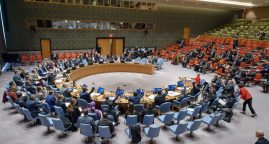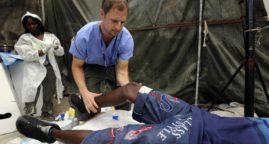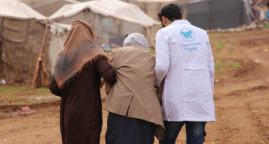The Global Risks Report 2016 is on line
The Global Risks Report 2016 features perspectives from nearly 750 experts on the perceived impact and likelihood of 29 prevalent global risks over a 10-year timeframe. The risks are divided into five categories: economic, environmental, geopolitical, societal and technological.
The report also examines the interconnections among the risks, and through that analysis explores three areas where global risks have the greatest potential to impact society. These are the concept of the “(dis)empowered citizen”, the impact of climate change on food security, and the potential of pandemics to threaten social cohesion.
The report also takes an in-depth look at the how the global security landscape could evolve in the future; sharing the outcomes of a year-long study to examine current trends and possible driving forces for the future of international security.
The report gave rise to a conference
Speakers:
- Adrian Monck, Head of Public Engagement and Foundations, World Economic Forum (moderator)
- Margareta Drzeniek Hanouz, Head of Global Competitiveness and Risks, World Economic Forum
- John Drzik, President, Global Risk and Specialties, Marsh
- Espen Barth Eide, Head of Geopolitical Affairs, World Economic Forum
- Cecilia Reyes, Chief Risk Officer, Zurich Insurance Group
Related Articles
Unity within Security Council vital to prevent mass atrocities – UN chief Guterres
04/18/2017. Briefing the Security Council, António Guterres today stressed the importance of unity in the 15-member body to effectively address human rights violations as well as to prevent mass atrocities.
Haiti marks 10 year anniversary of earthquake amid worsening food insecurity
01/09/2020. Malteser International currently runs community gardens and livestock programs that directly address Haiti’s food crisis.
Eight years of war in Syria: ‘The scale of human suffering cannot be expressed in numbers’
03/14/2019. Half a million people have lost their lives and millions have been displaced, but the scale of human suffering cannot be expressed in numbers.






